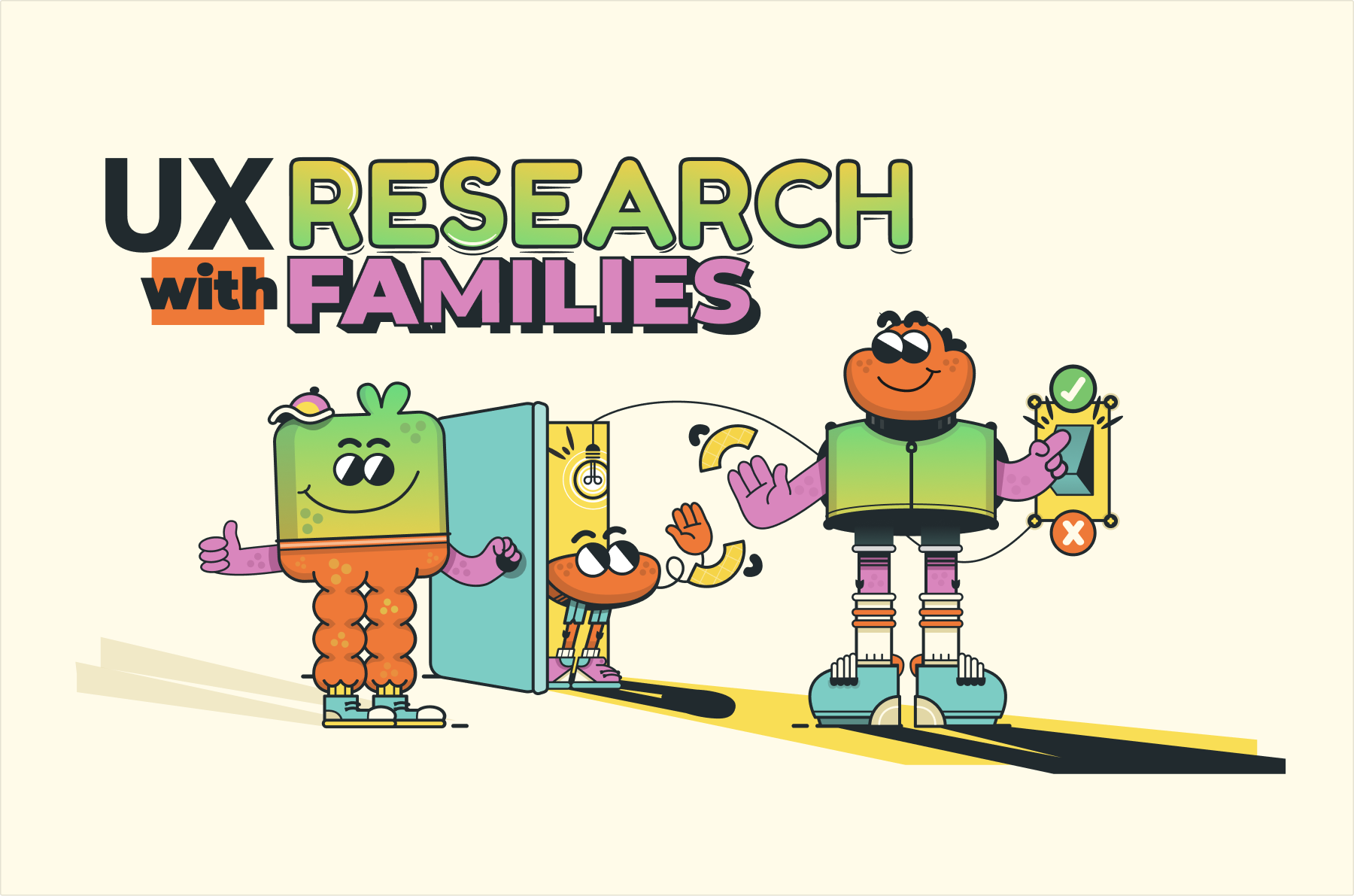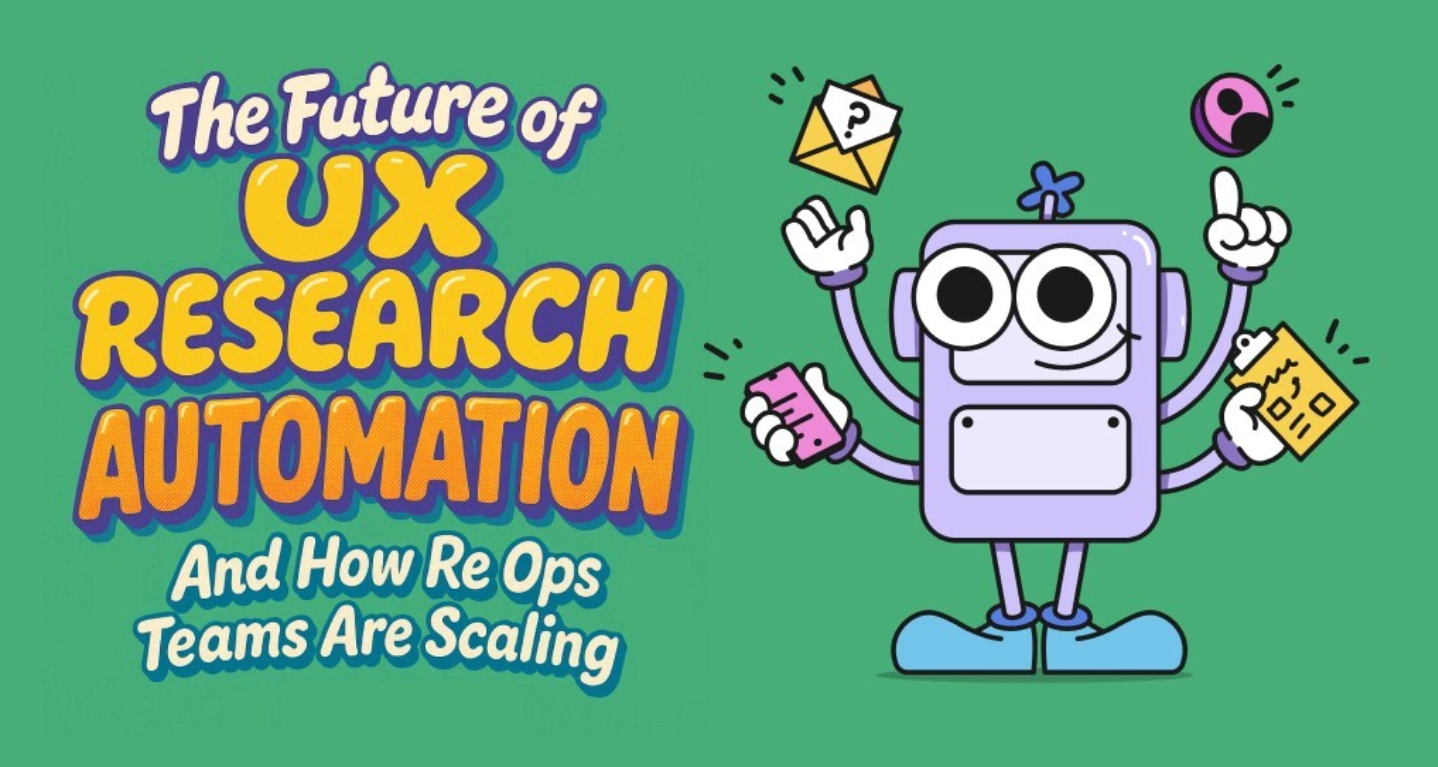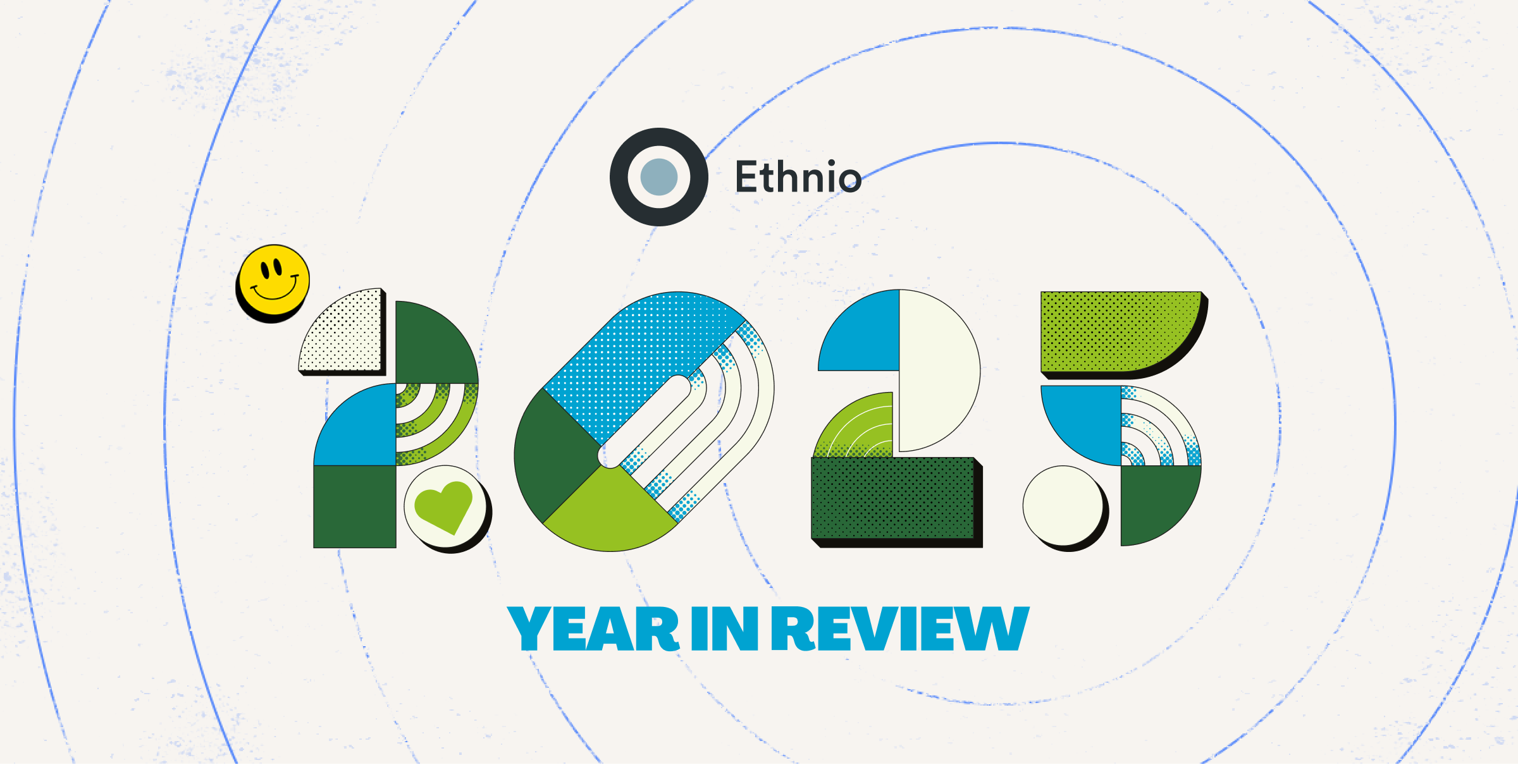Perspectives from the front lines
On April 28 in San Francisco, we brought together UXR, ReOps, product, and design leaders from Wells Fargo, Instacart, Volvo, and more for a live panel on a topic that deserves far more airtime: the ROI of Research Operations.
A huge thanks to the Design, Research, and ReOps teams at Turo for hosting this in-person discussion, moderated by Ethnio CEO Nate Bolt. The panel featured experts from Instacart, Turo, and Mule Design, diving into the value of ReOps and how its ROI is measured (or misunderstood). Panelist Megan Aguilar, Design & Research Program Manager at Instacart, captured the core message:
Research Operations isn't just tactical work and scheduling—it's strategic thought partnership.Missed the event? We got you covered.
Read on for key perspectives and themes from the front lines, including how ReOps drives measurable impact, the risks of relying too heavily on automation, and why ROI is often more about trust and systems than velocity. Plus quotes, frameworks, and takeaways from an evening with the community that continues to push the conversation forward.

Meet the panelists
👉Erika Hall, Author of Just Enough Research & co-founder of Mule Design
A passionate advocate for strategic, impactful research, Erika is a design consultant and co-founder of Mule Design Studio. She helps teams ask the right questions and collaborate to drive meaningful, customer-focused outcomes.
👉Megan Aguilar, Design & Research Program Manager @ Instacart
On the front lines of enabling and scaling ReOps at an enterprise level, Megan brings vast expertise in leading cross-functional programs that reduce friction and drive customer-centric outcomes.
👉Denise Sauerteig, Lead UX Researcher @ Turo
With a background in ethnographic research and a passion for understanding human behavior, Denise designs and conducts studies that drive product decisions. As Lead UXR, she leverages ReOps to work cross-functionally, ensuring insights align with both customer needs and business goals.
👉Nate Bolt, Founder of Ethnio
Nate Bolt, founder of Ethnio, will moderate the panel. With years of experience in UXR and ReOps, Nate created the first user research CRM tool, "built for researchers by researchers," to solve the challenges of scaling research ops and streamlining workflows.

Takeaway #1: The value of ReOps is complicated
Answering the question of how to measure something so deeply rooted in nuance was one of the key reasons we hosted this event (along with any excuse for a slice of pizza).
Viji Hari, runs ReOps at Verily ( Alphabet’s life sciences offshoot) as a project manager, captured this tension perfectly:
ReOps is celebrated when there’s predictability, but during uncertainty, ops can be seen as either blockers or partners.That flip—from trusted partner to perceived blocker—is exactly what makes defining and defending the value of ReOps so tricky. Depending on the audience, “impact” might be framed as time saved, fewer no-shows, stronger insights, or budget efficiency. But none of those metrics alone tell the whole story.
Erika Hall, our panelist, co-founder of Mule Design, and author of Just Enough Research, nailed it with a vacation planning analogy that resonates with anyone who’s ever done even a bit of travel research. A solo weekend trip might take minimal planning—but take your entire family abroad, and suddenly you’re juggling mobility needs, dietary restrictions, pricing sensitivities, and maybe even packing special gear for birdwatching.
Just like ReOps, that kind of planning is both qualitative and quantitative—full of logistics, timing, and hidden complexity. Behind every seamless research initiative is that same invisible work: coordination, foresight, and strategic care.
Maybe we’re overcomplicating it. Maybe ROI is simpler than we think.
What if the clearest signal of ReOps value is whether your researchers, PMs, and designers want to collaborate on a research project again?
Takeaway #2: Beware of the score trap -Quantifying impact vs. measuring quality
Also known as Goodhart’s Law, Erika Hall pointed out that once a metric becomes a target, it stops being a useful measure. When the focus shifts solely to numbers, we risk losing sight of what really matters.
Quality needs a rich description before measurement. Quantification is a desire for certainty in an uncertain world. The ROI conversation shouldn’t be limited to throughput metrics, like the number of studies, participants, or incentives processed. Data without qualitative follow-up—such as asking “Why did this fail?” or “What happened here?”—leaves too much room for misinterpretation. Without consistent, conversational feedback, we miss the opportunity to spot real patterns that can drive improvement.
Instead, we need to focus on the deeper value that ReOps creates. To achieve this, it’s essential to start with qualitative discovery—taking the time to reflect on your own systems and processes before jumping to conclusions based on numbers.
Here’s a simple framework to get started:
Describe what good looks like
Define observable signals of quality (e.g. repeatability, speed, team satisfaction)
Then derive metrics from those signals
Takeaway# 3: Building the business case for internal teams could be the game-changer
Kevin Simmons, Lead Service Designer at Volvo Group Innovation Lab, dropped a question that hit home for anyone trying to scale research ops:
We outsource ops, which makes it easy to quantify. But when do you bring that capability in-house? That’s the challenge.It’s a fair callout. Outsourced ops are measurable—by hours billed, projects closed, dollars spent. But when the goal is long-term impact and seamless integration? That’s when internal teams start to matter.
Kicking off a powerful conversation around borrowing measurement models from other industries. Nate brought up an example of a government food assistance program that showed ROI not just in meals delivered, but in broader impacts—like increased workforce participation and GDP growth. That kind of thinking—zooming out from outputs to outcomes—is exactly what’s needed for the building the case for an in-house ReOps team.
Here’s where the discussion landed:
Erika pointed out that ReOps reduces waste: fewer no-shows, fewer abandoned studies, less researcher confusion. That’s real value that doesn’t always show up on a dashboard.
Denise suggested looking to Agile and Scrum for measuring process health. If those frameworks help product and engineering iterate faster, they can do the same for ReOps.
Megan shared how Instacart uses clear tactical metrics—SLA compliance, no-show rates, and stakeholder feedback loops—to track performance and improve collaboration.
Just remember feedback needs to flow in both directions. Not just from stakeholders to ReOps, but back again. That’s how you build trust, surface blind spots, and evolve systems that scale.
So no, we don’t need to invent a whole new metrics playbook. We just need to remix what already works across service design, product ops, and beyond to tell the real story of ReOps impact.
Takeaway #4: Research ops is a human-centered discipline
We cut through automation hype with a brutally honest reflection around the loud narrative these days that AI will eventually replace research ops.
No tool can navigate policy reviews or earn legal-team trust on the fly.
Aneta Hall, who’s spent over a decade running ReOps in financial services (where every policy review and security check is non-negotiable), drives this home: tools don’t handle compliance, they don’t manage risk, and they don’t build the relationships required to run ethical, scalable research.
Research ops is the keeper of the process. No AI tool can adapt fast enough to the evolving requirements of legal, risk, and compliance.ReOps pros design the processes, enforce governance, and keep research ethical, scalable, and impactful.
Now that’s real ROI.
Takeaway #5: Speed, scalability, and quality are the ReOps power trio.
Let’s land this with what we all know… whether you’re scaling a ReOps function or still fighting for buy-in, this work is real and the impact is measurable, even if not always in dollars.
Is there value to research without Research Ops? There’s so much we wouldn’t be able to do at quality, scale, and speed without it.Ultimately, all paths in ReOps lead back to one thing: the participant experience. The best measure of ReOps success is a research environment where participants feel respected, and those conducting research feel supported. By creating an ecosystem where research happens seamlessly, ethically, and at scale, ReOps ensures that human insights continue to drive decision-making across teams and organizations.
Huge thanks to the Design, Research, and ReOps teams at Turo for hosting this event, and all in all a great meet up!

TL;DR
In case you’re looking for the cliff notes:
ROI starts with clarity
Vague definitions won’t move the needle with stakeholders. Clear examples, frameworks, and stakeholder-aligned language are essential.
ROI = trust + systems + fewer no-shows, not just velocity
Ops is strategic
Research Ops isn't just logistics or compliance — it's a form of leadership and design partnership.
Don’t chase bad metrics
Metrics need narrative. Goodhart’s Law is real. ROI becomes meaningless when metrics become the goal rather than the guide.
Borrow from adjacent disciplines
Think like product, engineering, or service teams. Agile, SLA compliance, and customer experience frameworks can offer measurable signals of quality.
Automation ≠ replacement
Tools support ReOps. They don’t replace the trust, adaptability, or organizational navigation that ops people provide.

Keep the conversation going!
I left feeling energized about Research and Research Operations, and the impact our functions are driving together.
Want to continue learning and connect with our amazing community?
Follow us on LinkedIn for more updates, insights, and behind-the-scenes content from our amazing community.

Don’t miss out on future events!
Feeling some FOMO after reading about our latest panel?
Stay up to date via LinkedIn or our Events page.
We'll be at UXDX Berlin and have a webinar coming soon in Summer 2025.
Looking forward to the next time we can get together!
👋 What's Ethnio?
Ethnio is a Research Operations Platform that removes the pain of recruitment and study management to help you scale research confidently and make better, faster product decisions.















